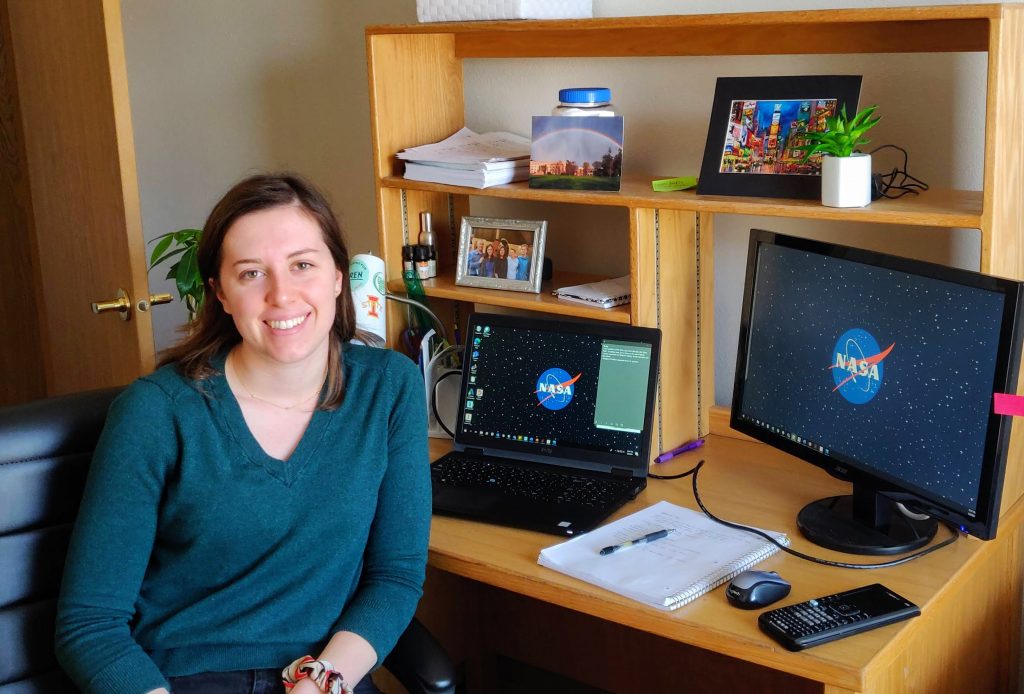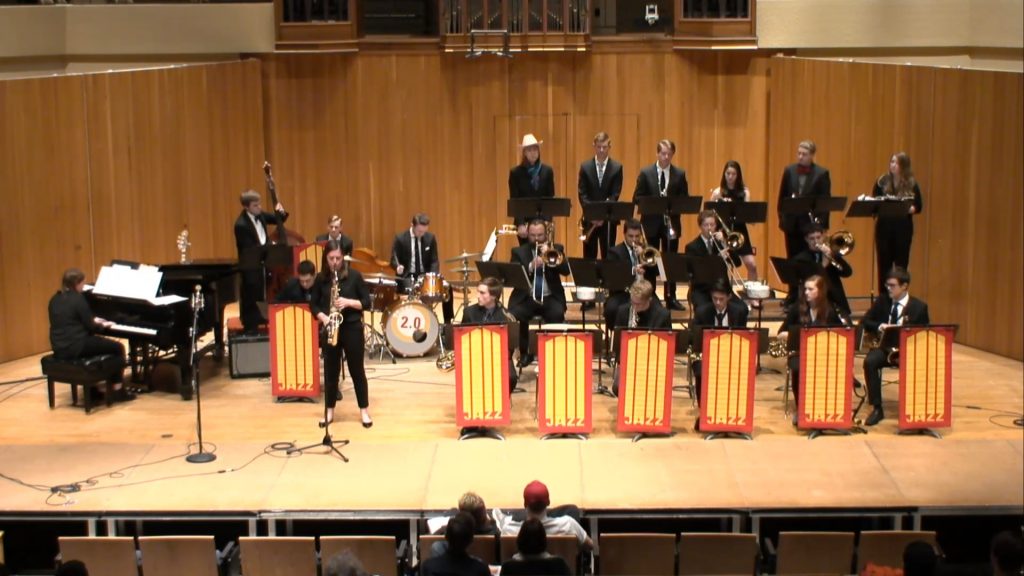Undergraduate research experience launches ME student to NASA internship
Author: Nick Fetty
Author: Nick Fetty

As someone who benefited greatly from the encouragement she received to pursue studies in STEM, mechanical engineering senior Olivia Tyrrell wants other girls and women to also be inspired to go into STEM.
Tyrrell grew up in Downers Grove, Ill. Though she always had an interest in science as a child, it was a visit to Argonne National Lab for Women in Science Day led by her high school physics teacher that sparked her interest to pursue engineering in college.
She picked Iowa State University because of its strong reputation for engineering as well as the scholarship support she was awarded. She said she was also attracted to the campus and its “big university feel.” Though she came in undeclared in engineering, she soon found her niche in mechanical engineering (ME).
“I ultimately chose ME because I was interested in potentially working in the healthcare field on medical devices,” said Tyrrell. “It seemed like ME would cater more to my diverse interests and I felt more secure knowing that I could go into nearly any sort of technical industry with that degree.”

Tyrrell further developed her diverse interests through participation in a handful of engineering activities on-campus. She has been part of the Biomedical Engineering Society for the past three years and currently serves as the club’s vice president. As a sophomore, she served as a learning community peer mentor for Women in Science and Engineering (WiSE). Music is also an important part of Tyrrell’s life. She’s played alto saxophone in Iowa State’s jazz ensembles since she arrived on campus. She considers music to be a stress reliever and a nice break from the rigors of the ME curriculum.
As a junior, she got involved with research and joined the Multiphase Reacting Flow Lab, working under the guidance of James Michael, assistant professor of ME. Tyrrell took ME 332: Engineering Thermodynamics II with Michael, and said she’s applied material from that course and others in her research.
“The exposure to research at a graduate level and the strengthening of my technical reading, writing, diagnostics and data processing skills has been extremely beneficial. By giving me the opportunity to work collaboratively and independently on a research topic, Dr. Michael has introduced me to a lot of opportunities for research in the future,” said Tyrrell, adding that she thinks the research experience helped her to land her current internship with NASA.
The internship started in January and will conclude in August. Though the internship is through NASA’s Langley Research Center (located just north of Norfolk, Va.), Tyrrell has worked remotely from her university apartment in Ames. The internship is with Langley’s Advanced Measurement and Data Systems branch, and much of her work focuses on experimental visualization and simulation of research taking place in Langley’s wind tunnels, some of which can reach speeds of Mach 10 (10 times the speed of sound).
Through her internship she has also contributed to the Commercial Lunar Payload Services program by providing visualization of imaging systems that will go to the Moon in 2021 and 2023 as part of a payload called SCALPSS (Stereo Cameras for Lunar Plume Surface Studies). She said the knowledge and skills she’s developed through her courses in fluid mechanics, heat transfer, CAD and Matlab have been useful throughout her internship experience.
Tyrrell was featured in an article published on NASA’s website which highlighted some of NASA’s Langley interns as part of Women’s History Month. Encouraging more women and girls to pursue studies and careers in STEM is one of Tyrrell’s passions.
“I think it’s terrific that more young women are pursuing careers in STEM and I’m definitely an advocate for making the field more diverse as a whole,” said Tyrrell. “Providing encouragement and positive opportunities for people who have historically not been represented in the field can only lead to more success and innovation, in my view.”
Tyrrell will complete her B.S. in ME in Fall 2021. She has yet to decide what she will do for the next chapter of her life, but she knows that whatever it is her time at Iowa State has prepared her well for it.
“I’m hoping to return to NASA as an engineer but am also considering graduate school to continue my education and stay involved in research. I’m really happy to have a lot of different options and paths to be considering right now and I attribute that to the great job that Iowa State has done preparing me to be an effective engineer,” she said.